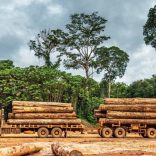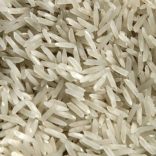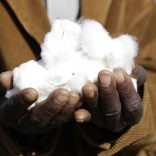Mozambique: Increase in timber harvesting quota approved
Mozambique: Government seeks partners for milk production – Noticias

File photo: Noticias
The government is looking for a professional partnership to streamline the milk value chain in Beira and Dondo, in Sofala province.
According to the Ministry of Agriculture and Rural Development (MADER), the idea is to revitalise the production of milk and derivatives based on the operationalisation of the milk and dairy factory in Beira.
In 2013, the government acquired the old margarine factory in Beira, with the aim of transforming it into a milk and dairy factory, an estimated investment of more than 50 million meticais aimed at the expansion and sustainability of milk production.
MADER, which considers the production of milk one of the biggest weaknesses of the livestock subsector in Mozambique, intends to hire a new professional management for the factory.
Currently, there is a nucleus of semi-commercial producers in the city of Beira, and four family sector milk producer cooperatives in Manica, established in the last seven years by Land O’Lakes, an American non-governmental organization.
The production of these concerns is too small to satisfy national demand, and their production systems are of very low productivity. The average daily production per cow is five litres and the percentage of animals in lactation is below 50%.
To reverse this scenario, the authorities argue that programmes to increase milk production should both promote the intensification of existing systems and foster the supply of dairy animals to new stakeholders.
Among constraints on the development of the milk value chain are the lack of dairy animals, lack of technical knowledge among producers and other stakeholders, and weak financial capacity to improve production inputs such as irrigation systems and milking facilities.
Added to this is the difficulty of obtaining animal feed at acceptable prices and the high incidence of diseases such as tuberculosis and brucellosis. There is also a weak integration of production with processing and marketing.
This situation can only be reversed with the intensification of a dairy cattle production system based on the training of breeders and technicians in the management of livestock and the implementation of a crossbreeding programme for better adapted animals which produce more milk, among other priority needs.
Relatively recent figures indicate that, due to the scarcity of domestic milk production and processing, Mozambique spends more than US$200 million a year on the import of dairy products.












Leave a Reply
Be the First to Comment!
You must be logged in to post a comment.
You must be logged in to post a comment.